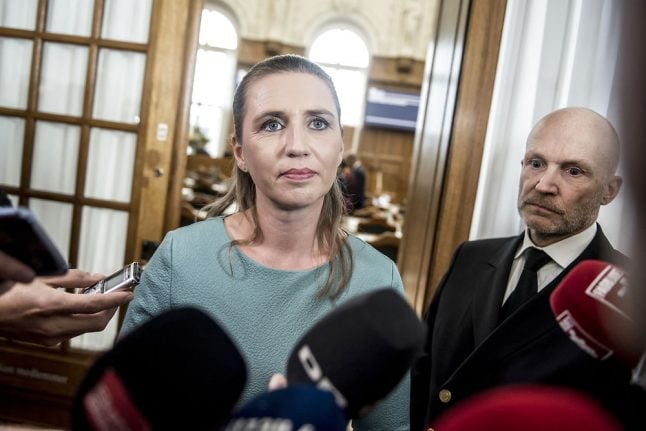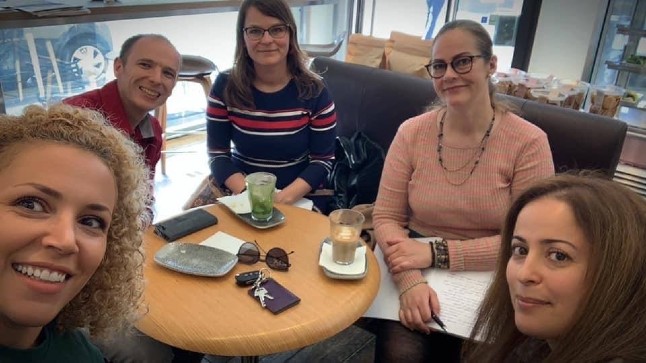Frederiksen’s comments came in response to Prime Minister Lars Løkke Rasmussen’s speech at the opening of parliament on Tuesday.
In the speech, Rasmussen confirmed his government would launch a programme aimed at bringing in skilled foreign workers from abroad.
“Tomorrow, the government will present a programme which will make it easier (for companies) to attract staff from countries with which we already have strong bonds. Such as the United States, Canada, Singapore, Japan,” Rasmussen said in his speech.
Minister for immigration and integration Inger Støjberg and employment minister Troels Lund Poulsen on Wednesday officially presented a 21-point programme aimed at smoothing the way for companies who want to attract skilled workers from outside the EU, EEA or EFTA.
READ ALSO: Danish government presents plan to recruit skilled foreign labour
But Denmark has no need for such workers, according to Frederiksen.
“I don’t agree with the prime minister. He wants to import labour from, for example, Africa and Asia to the Danish labour market,” Frederiksen said to Ritzau, omitting countries not on those continents but included by Rasmussen in his speech.
“That is endlessly short-termist. Firstly, we have many young people who are currently not doing anything. It is better to invest in their education,” she said.
“We also have unskilled workers who should be given the chance to gain skills and women who are working part-time,” she added.
Frederiksen argued that Danish companies who lack skilled workers could look to the EU labour market, which she considers sufficient to make up any shortfall in skilled labour already present in Denmark.
“I would very much like to help solve bureaucratic problems met by companies in their attempts to attract skilled labour.
“But it’s a ‘no thanks’ to easing the way for skilled labour from third countries,” she told Ritzau.
The Confederation of Danish Industry (Dansk Industri, DI), a private interest organisation funded, owned and managed by 10,000 companies within the manufacturing, trade and service industries, rejected Frederiksen’s claims that Denmark would not benefit from skilled labour from outside Europe.
There would be no benefit in restricting Danish companies to drawing employees only from within the EU, Linda Wendelboe, head of global talent with DI, told The Local.
“This is not a question of one way or the other, we need to do both. We need to be better at educating the talent we have within Denmark, we need to get better at bringing in the employees we can from the rest of Europe, and we also need to look at the broader perspective and attract the talent that (companies) need from outside Europe,” Wendelboe said.
“So it’s not a question of, ‘should we do one thing or another’, it’s a question of companies really needing access to the best talent from all over the world, so we need to do both,” she added.
The organisation’s deputy director Steen Nielsen said that Denmark would be putting its economic upturn at risk by reducing opportunities for skilled foreign workers.
“There is absolutely a risk. When companies cannot find staff to carry out work, they are forced to say ‘no thanks’ to new orders and taking on work,” Nielsen told Ritzau prior to Wednesday's official presentation of the plan.
“That will give us lower growth than we otherwise could have,” he added.
Nielsen also said he was positive about the government strategy for international recruitment.
“It is a very good idea to try to bring more foreign workers to Denmark. We have a strong need for it. There are currently good job opportunities for jobseeking Danes. They have good opportunities to find work,” the DI deputy director said.
“But we also need to bring in foreign labour,” he added.
According to figures from national bureau Statistics Denmark, unemployment fell by 600 between July and August this year. 11,200 more people gained employment during the 12 months prior to August 2018. The exceptionally high employment figures are a warning sign given the current struggles of many companies to fill positions, DI has argued.
READ ALSO: PM, opposition leader discuss employment of skilled foreign workers at conference




 Please whitelist us to continue reading.
Please whitelist us to continue reading.